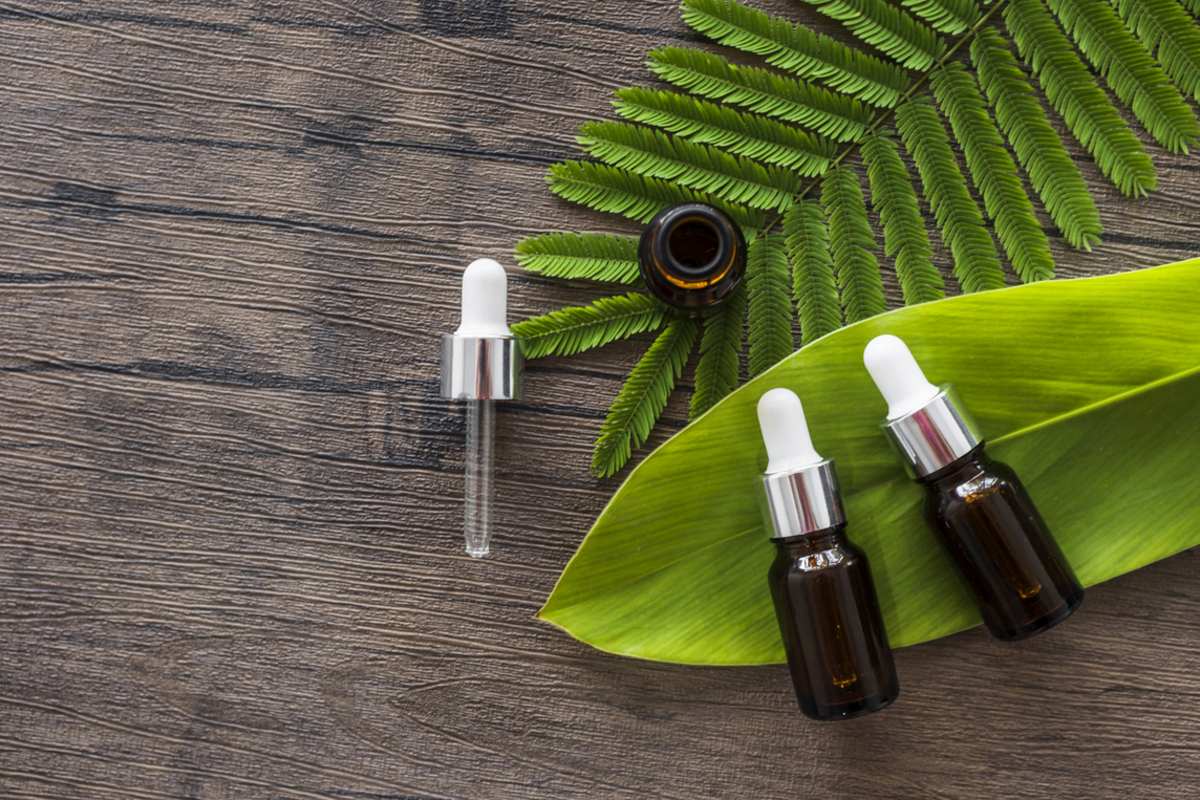We have all, at one time or another, lit a scented candle, enjoyed a professional massage during which superbly smelling essential oils were used, or rubbed some mint oil under our noses to help with nasal congestion. We're all familiar with the words "aroma" and "therapy" — as smells, particularly pleasant ones, and the practice of treating diverse health conditions.
Aromatherapy is so much more than using nice smells to make you feel better, though. Although this field very much remains within the realm of alternative or complementary medicine, many discover that it can really help them.

Aromatherapy — also known as essential oil therapy — is often said to help you with chronic pain and generally improve your well-being. This unique field of medicine makes use of plant extracts to help you with both your physical and mental health. You may have heard a bit about aromatherapy yourself, but is there any evidence that it can actually help you?
Aromatherapy dates back thousands of years; Chinese, Indian, and Egyptian cultures used plants to extract oils and balms to improve their health, as well as for religious reasons. These plants were widely known to have health benefits.
Is what was good for them still good for you, too? Could aromatherapy help you become a healthier and happier person?
Aromatherapy: Is There Any Scientific Evidence for Its Efficacy?
Some people claim that aromatherapy can help treat pain, sore joints, to boost your mood, to fight certain bacterial infections, and even treat heart disease and Alzheimer’s disease. Are these claims actually true, though, or are essential oils not as helpful as some say; are they, in other words, a modern-day snake oil that only benefits those who profit from their sales?
One study — or rather, we should say, one of many, most of which simply conclude that the jury is still out on aromatherapy — takes a look at how effective aromatherapy is at treating a variety of conditions. While it did find some evidence that it could help with period pain, there was insufficient evidence in a lot of other areas. The study also mentioned that aromatherapy might be useful in easing stress and depression, hypertension, labor pain, and help with sleep quality, though there isn’t much evidence for this. However, multiple studies also found that aromatherapy could help to lift your mood and reduce the symptoms of depression.
Basically, there still isn’t much evidence when it comes to aromatherapy. Though some science points to the idea that aromatherapy could help with anxiety and depression, this is based on subjective reports. If nothing else, aromatherapy could act as a powerful placebo — and we know, from prior evidence, that placebos really can help to improve subjective well-being. There's nothing wrong with that, so long as you don't choose the placebo instead of a treatment that was actually proven to help, particularly in the case of life-threatening conditions.
As far as the evidence goes, lavender, peppermint, and chamomile essential oils have the strongest scientific backing, as these oils could help with sleep and make you feel less tired, while citrus scents can improve your mood.
What Different Types of Aromatherapy Can You Choose From?
When it comes to aromatherapy, you'll find a lot of different methods, all of which could be useful in different ways. Before you look into trying aromatherapy yourself, you might want to learn more about the different ways people apply essential oils. Some of the most common types of aromatherapy include:
- Aromatic spritzers are basically tiny spray bottles, which can deliver essential oils to your skin, your clothes, or your environment.
- Diffusers are devices designed to spread essential oils throughout a space, often used for the scent alone. May also have health benefits.
- Inhalers are often used for nasal congestion, such as Himalayan salt inhalers.
- Massage oils are a way to deliver essential oils straight to your skin, potentially energizing you or giving relief to sore muscles.
While the method of use can matter, it's most important that the oils used are tailored to your unique needs.
Which Medical Challenges Can aromatherapy (Potentially) help with?
Now that you’ve learned a little bit about aromatherapy, you may be wondering if aromatherapy can actually help you with health-related problems. The short answer is probably not. Though aromatherapy probably won’t be curing any chronic pain or heart diseases, it does smell nice, and this is important too.
Smells can impact our mood, in both good and bad ways. Smells can definitely bring you back to certain memories and evoke a feeling of nostalgia — like the sweet smell of apple pie your grandma always made you or that certain perfume your friend always used.
If you want to use essential oils just because the smell makes you happy, that’s perfectly valid. This isn’t to say that essential oil simply has no benefits other than smelling good, because there has been some evidence to suggest it can help with other things too.
The smell of lavender can, for instance, calm people down and put them to sleep. Tea tree oil is great as an antiseptic, often used for acne and athlete’s foot. While lemon oil and other citrus smells are said to help with depression as well as nausea.
While the research is still very narrow when it comes to aromatherapy, that doesn’t mean there isn’t any physical or mental health benefits. If it makes you sleep better when you use lavender oil before you sleep or spritz yourself with lemon oil every time you go out, why not use it?


Your thoughts on this